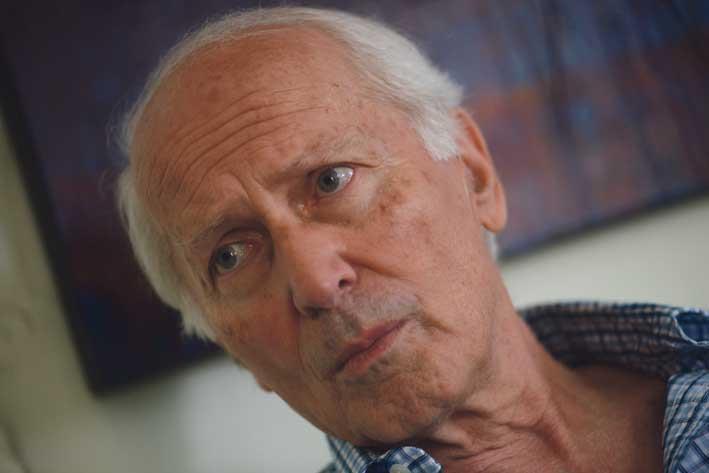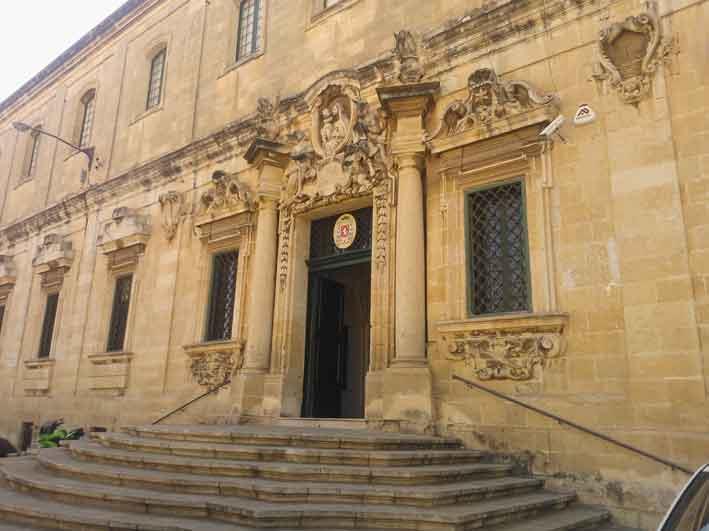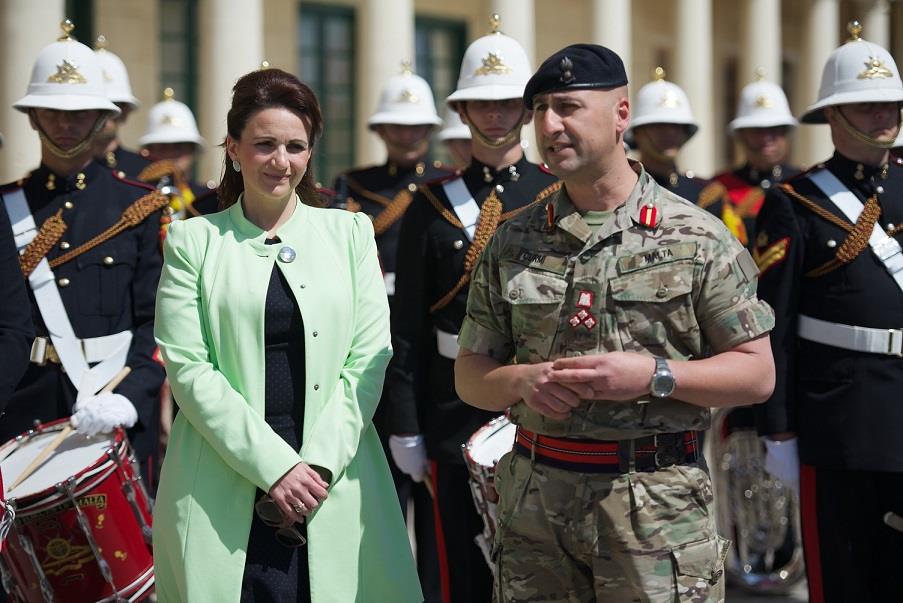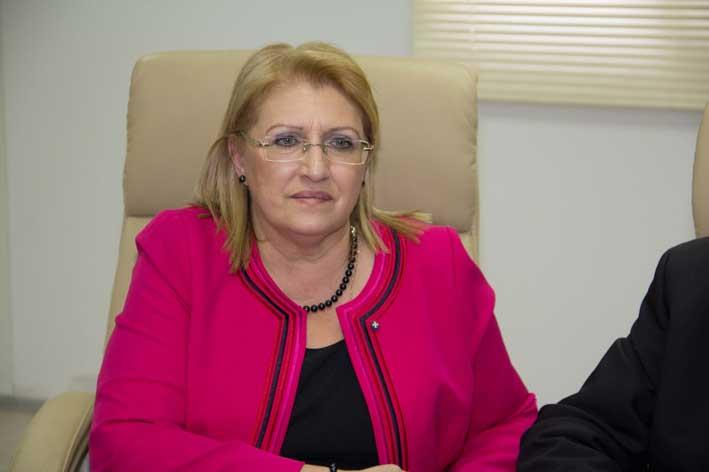What is the role of the Commissioner for Voluntary Organisation?
The role of the Commissioner came into force in 2007. I am the first Commissioner occupying this post. My job is quite complex. First of all, I have the duty to serve as an intermediary between organisations and the government. I am also the point of contact for the government when it comes to policy making.
Secondly, I have the responsibility to set up a registry of voluntary organisations in Malta. This means that every NGO who is included this registry can benefit from Government schemes, and it can fundraise without a police permit. Thirdly, my aim is to serve as regulator in this sector. I have to carry out investigations when complaints arise, and voluntary organisations are obliged to present their financial statement before this office. They must also present their administrative report and keep me up to date if any changes in the statute of the organisation occur.
In reality, the job in itself entails a lot of moderation and monitoring.
How many complaints do you receive in a year?
In the last two years, we have received 22 complaints where I have given specific directions or warnings. I still have some three or four pending cases.
I anticipate that in the future, the number of complaints will increase, because the role of the Commissioner is more defined and because the number of NGOs has increased a lot.

How do the complaints vary?
Complaints vary a lot. Most commonly, I have to deal with internal disputes between organisers, or misbehaviour of the administrators and members of the organisation who do not follow the statute. Of course, things get very serious when there is suspicion of misappropriation of funds. In that case, if I have sufficient evidence before me, I refer to the police.
In the near future, my role will get a bit wider. Right now, we have a white paper up for consultation which will bring with it more responsibility from my part, including monitoring for possible money laundering and terrorism.
Let’s not forget that when we speak of NGOs in Malta, there is quite a large number who are involved on an international level. Many administrators of local NGOs are not even Maltese. The list of complaints is endless, but my first approach is always mediation. Then I move on to carry out my own investigation.
Once I receive a complaint and I am presented with supporting evidence, I request that particular organisation to reply to my queries and give them the opportunity to provide a valid explanation.
But what happens if you are not satisfied with that explanation?
Things can get very complex. I had a case of someone who feels that he has been expelled from the organisation illegally, not according to the NGO’s statute. We had to have lawyers involved.
What powers does the Commissioner have?
I can go as far as to suspend the organisation or even strike them off the registry. When I started this work I was worried because I had limited action I could take. The process is long and quite bureaucratic.
Before I take any drastic action, I need to go before the administrative tribunal to provide me with the permission to proceed against that organisation. Then the case is heard and the NGO can even appeal. It is very time consuming, expensive and some cases end up being concluded after two years or even more. By that time, justice is not done.
At least, with the amendments being proposed, the commissioner will be able to apply the powers provided by the law. The white paper consultation process will go on till July. Then Parliament will need to discuss the changes in the law.
You mentioned these amendments in the law. Besides your remit, what else will change?
The law right now does not oblige NGOs to register with the Commissioner’s registry. However, if the proposed amendments are approved, every NGO will be obliged to register. Otherwise, they will not be allowed to organise fund raising.
The amendment will also allow me to suspend an NGO immediately.

You had insisted that Church Organisations should also register with the Commissioner. Will the White Paper amend this?
First of all we must clearly define what a Church organisation is. Here we are referring to organisations that receive directives from the Diocese. Now what happened is that when I started to compile the registry, the Church had protested and filed a complaint with the government of the time. It also issued a directive to all its organisations so that they do not register with the Commissioner.
This has been an issue on which we have been struggling about for a long time. But I always insisted that in the voluntary sector, we must have a level playing field. We cannot have an entity exempt from the law, because that would create an unfair situation.
Now, finally, I think we have solved the issue with the amendments proposed in the White Paper.
So has the anomaly been removed?
I think we have found a solution. But we have to go a step back. Nowadays, for an NGO to be recognised as a voluntary organisation they need to satisfy three criteria; not for profit, autonomous and serve a social purpose.
Until now, autonomous means independent from the government or state. But the new law will change the interpretation of ‘autonomous’, and organisation which fall under the responsibility of the diocese will no longer be considered as such.
The white paper will also address another issue - political parties. Up until today, political parties can technically be considered as voluntary organisations. They are not for profit (as the money raised always has to go back to the party), autonomous (they do not depend on the state) and they serve a social purpose. However, the party financing act will put political parties under the remit of the electoral commissioner.
Since the government must declare the funds allocated to the voluntary organisations, those who do not fall under this definition will not have the right to receive any funds.
The problem with the Church organisation is that they wanted the cake and they wanted to eat it. So now they need to set up an entity and register with the Commissioner. Dar tal-Providenza, for example, has already done this.

Is Marigold Foundation registered?
It is registered as a voluntary organisation, yes. My problem was not with the Marigold Foundation, but they mentioned another organisation when the famous inmates issue arose, and I wasn’t sure what the relationship between the two was.
Marigold Foundation, in its nature, aims to help other organisations complete their projects. They are autonomous, even though the wife of the Prime Minister is involved. Michelle Muscat does not hold a position with the state. I do not have a problem there.
What about Community Chest Fund?
They are not enrolled because they cannot. The law will not allow them to because they are not autonomous.
If MCCF keeps the same statute, by which the President of Malta is Chairperson, they cannot be considered as a voluntary organisation. MCCF is a public organisation.

Did you speak to the President about it?
I spoke to the President a lot of times. Not just with the current President but even with President Emeritus Dr George Abela.
And?
I became commissioner for voluntary organisations practically in between Presidencies. When Dr Abela was sill President in waiting, he had come to me and expressed his wish to be involved more in the running of the MCCF. He also wanted the foundation to become registered. But in the meantime, the statute of the foundation changed, and Dr Abela was given the same advice from the Attorney General – that with the role of the President, MCCF cannot fall under the voluntary organisations act.
I still insist that the foundation should change the statute in such a way that we have a level playing field for all. The President decided to keep his position.
Why do you think the President insists on keeping the position?
I cannot speculate. The current President kept the same policy and changed the identity of the entity by transforming it into a foundation, and that was an improvement. However, she decided to keep the position which was held by the previous President.
Of course, the MCCF does not lack funds. Actually, I had complained that MCCF had become too powerful. In fact I had described it as a monster. The fact is that in my opinion, although the foundation is not a voluntary organisation, it is still in competition with other NGOs. However, other NGOs cannot keep up with it because of the huge resources it has. The President’s presence is already a huge help.
I have no doubt that the MCCF is doing a lot of good.

In the recent years, we have seen television programmes that feature celebrities going to third world countries. Xarabank did this multiple times, but now there’s another programme coming up where the public nominates a celebrity to go up for voluntary work. What’s your take on this? Do you think this is right?
This does not fall in my sphere, but I think that ethics must be kept all along. Certain dignity must be kept and don’t like it when they use certain images for capital. I disapprove of these programmes that use the vulnerable and weak, such as poor children, to raise money.
I think it’s about time that in Malta, we set up the code of ethics for volunteers. We should establish how fund raising must be conducted, for instance.
We also need to place a legal framework for charity shops. They are a grey area, for now. But we will work on that eventually. Our aim is, ultimately, is to achieve maximum accountability.
How many NGOs are registered with the Commissioner?
Around 1,300 are enrolled at the moment. But we expect this number to grow.